
Whether you're preparing food for dozens in a restaurant kitchen or simply fixing dinner for your family, hygiene plays a key role in ensuring that the food you serve is safe to eat. Keep your kitchen counters, dishes and utensils clean, then take it one step further -- pay attention to your personal hygiene as well. Keep hands and nails clean, pull your hair back and don't sneeze on the food.
Wash, Rinse, Repeat
The single most important personal hygiene rule in terms of food preparation is to wash your hands. Keep germs and bacteria from getting into the food you're preparing by washing your hands before you start working, and as frequently as needed throughout the food-preparation process. Wash your hands each time you handle raw meat, poultry or eggs, as well as after using the restroom. And remember, "wash" doesn't mean a quick pass under the tap. Rub your hands together under warm running water, use soap, and be sure you clean all the surfaces of your hands and under the nails, then dry off thoroughly.
Cover Your Mouth
You don't have to wear a face mask if you have a cold when cooking, but do at least follow your mom's instruction from childhood to cover your mouth when you cough or sneeze. At a minimum, turn your face away from the work surface and your ingredients if you feel a sneeze coming on. Better yet, try to cough into your shoulder or inner arm. If you use your hand to cover a sneeze or cough, wash your hands again before returning to work to avoid transferring germs to the food or utensils you're using.
Hair Care
Think back to a time when you found a hair in your food and you'll understand why it's so important to keep your hair back from your face and away from the food you're preparing. You don't have to wear a lunch lady hair net in your own kitchen, but it doesn't hurt to pull long hair back into a ponytail to keep it out of the way. Make sure you don't have loose hairs on your clothes, because you don't want a stray hair to end up in your food. Don't run your hands through your hair while cooking, either. If you do by mistake, return to step one -- wash your hands.
Other Tips
There are a few additional personal hygiene steps you can take to prevent food contaminating. Don't stick your fingers into what you are preparing, whether to mix it or take a quick taste. In fact, handle the food you're preparing as little as possible; use tongs or utensils in place of hands whenever you can. Keep wounds bandaged, and wear gloves if you have cuts or sores on your hands. Wear clean clothes or an apron to prevent bacteria from dirty clothing getting into your food. And if you're sick, let someone else do the cooking.
Related Articles

How to Prevent Hair From Flattening ...

How to Remove Human Hair Mats
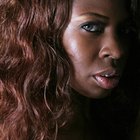
Directions for Wrapping Black Hair With ...

How to Get Your Eyebrows to Lay Flat

How to Tie Your Hair in a Tight Bun for ...

How to Use Regular Conditioners on ...

How Do You Minimize Scalp Irritation ...

How to Keep Your Hair Clean
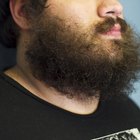
How to Straighten Your Beard Hair

How to Get Rid of Frizzy Straight Hair

How to Make Organic Shampoo at Home
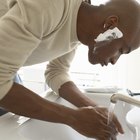
How to Get a Smooth, Bald Look

How to Open & Clean a Norelco 1050CC ...
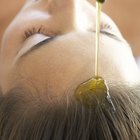
How to Nourish the Scalp
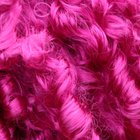
How to Make a Straight Wig Curly

How to Get Rid of My Permed Hair

How to Use a Probe Cooking Thermometer

Hair Tips for Super Dry Hair

How to Assemble a Food Mill

Do You Put Dry Rubs on Before You Cook ...
References
Writer Bio
As a national security analyst for the U.S. government, Molly Thompson wrote extensively for classified USG publications. Thompson established and runs a strategic analysis company, is a professional genealogist and participates in numerous community organizations.Thompson holds degrees from Wellesley and Georgetown in psychology, political science and international relations.
Photo Credits
Jupiterimages/Creatas/Getty Images